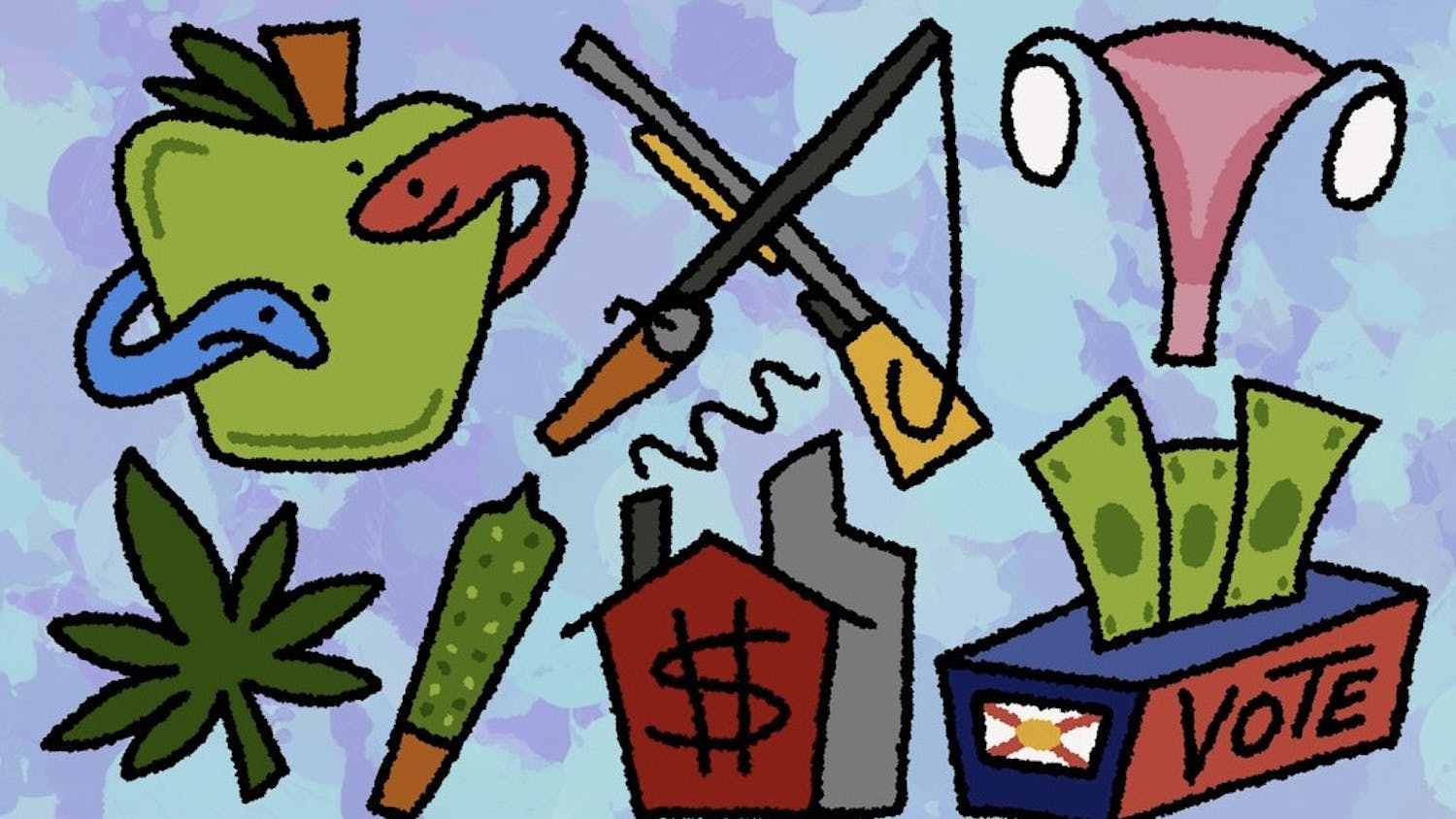"The best argument against democracy is a five-minute conversation with the average voter.” —Winston Churchill
Being able to vote on both local and national matters as a U.S. citizen is one of the most essential aspects of living in a democratic society.
People have fought and died throughout history for this privilege, yet a surprising number of people will stay home on Election Day this November. This is by no means a bad thing. In fact, it’s one of the great things about our country: We don’t have an overpowering government that forces us to vote if we don’t want to.
At a time when the government seems to be tightening its grip and rapidly expanding its reach over the people, Americans still have the choice of whom and what to vote for, if at all, without any overpowering pressure or influence present.
All citizens should be informed voters and have their voices be heard during elections.
However, I believe better decisions would be made at every level of government if the voting age were raised to 21.
How can the government not trust 18-year-olds with alcohol yet trust them with making mature and well-informed decisions in elections? An 18-year-old can vote for the commander-in-chief but not legally have an alcoholic beverage for another three years.
Now, voting and consuming alcohol are not at all related in action, but I think they both represent a certain level of responsibility on both the personal and societal level.
I’m confident my vote is well-researched, thought-out and representative of my personal beliefs and values. However, I am not confident all 18- to 20-year-olds are the same way. We’re still young, and young people — despite any claims otherwise — are still heavily influenced by outside and social forces that can mold one’s vote.
I don’t want to generalize all 18- to 20-year-olds, but many young voters will vote for whomever their parents or friends tell them to, without doing any independent research themselves. Young people are often swept up with the social movements at the time and meander their ways through the political landscape with a “pack mentality,” just following the masses, not 100-percent sure of what exactly they’re following.
I may be wrong, but I would break the population of 18- to 20-year-old voters into thirds. One-third is informed and makes thoughtful decisions on whom and what they vote for. Another third will vote for whom and what they are told by friends and family. The other third will vote for whom they perceive everyone else will or whom they think has the best chance of winning — known as the “bandwagon effect” in psychology.
The three years between 18 and 21 may not be a whole lot of time, but I like to think these years involve at least some maturing. A 21-year-old may be just as lost in the world as an 18-year-old, but they at least have some more life experience and education under their belts.
Realistically, a 21-year-old might feel they have more at stake in the short-term, since they’re likely about to enter the workforce and real world. Our views are shaped by our upbringing, education, beliefs and past experiences, and these three additional years can only result in more considerate, educated votes.
With the Florida primary just around the corner and a critical election coming this November, now is the perfect time to look inward and establish a personal political voice and view with a democratic vote.
This is a pivotal time in U.S. history, and as our country appears to polarize itself and the world becomes more interconnected, every election and major decision being voted on will need to be decided by a knowledgeable electorate.
Andrew Hall is a UF finance sophomore. His column appears on Thursdays.





